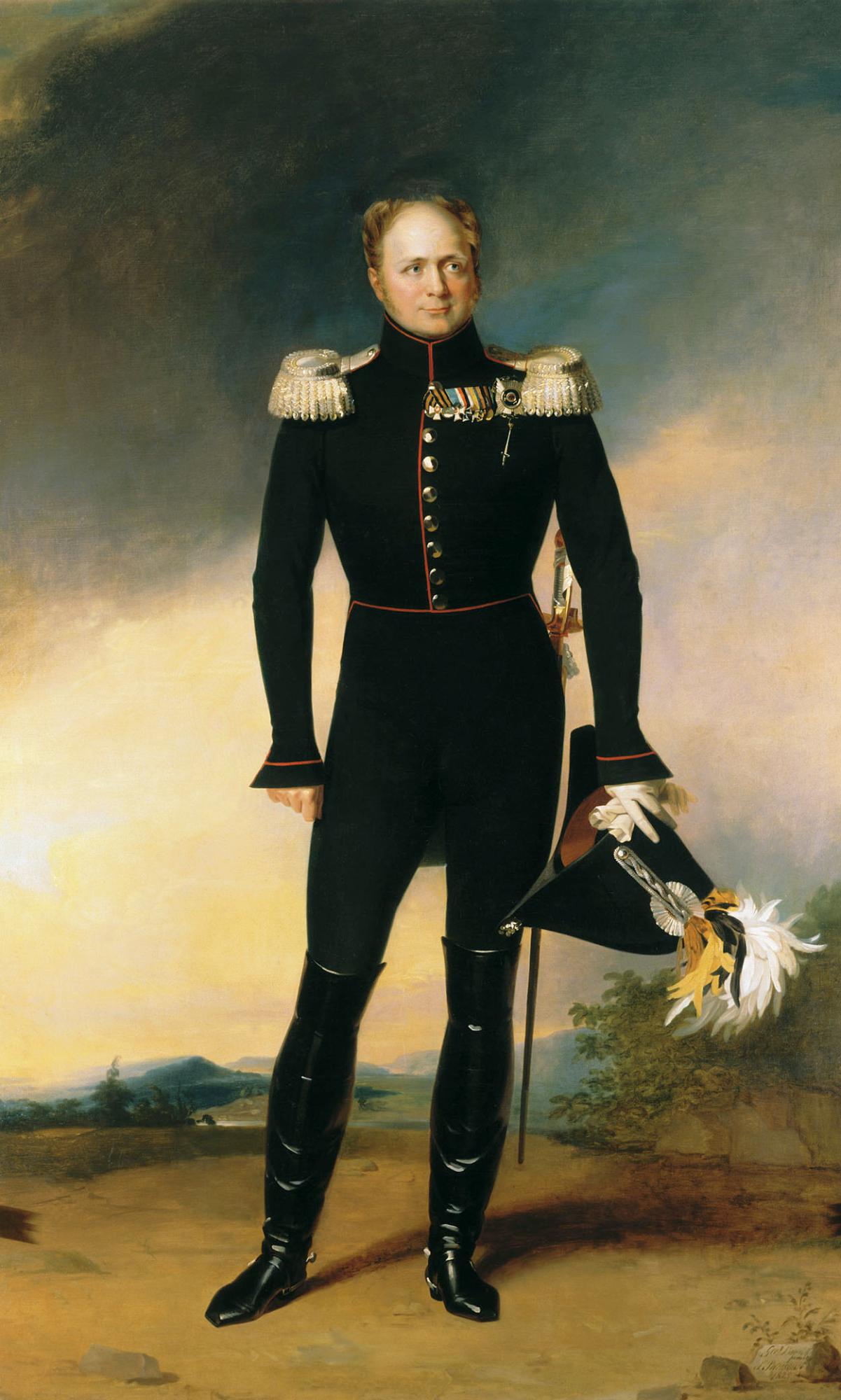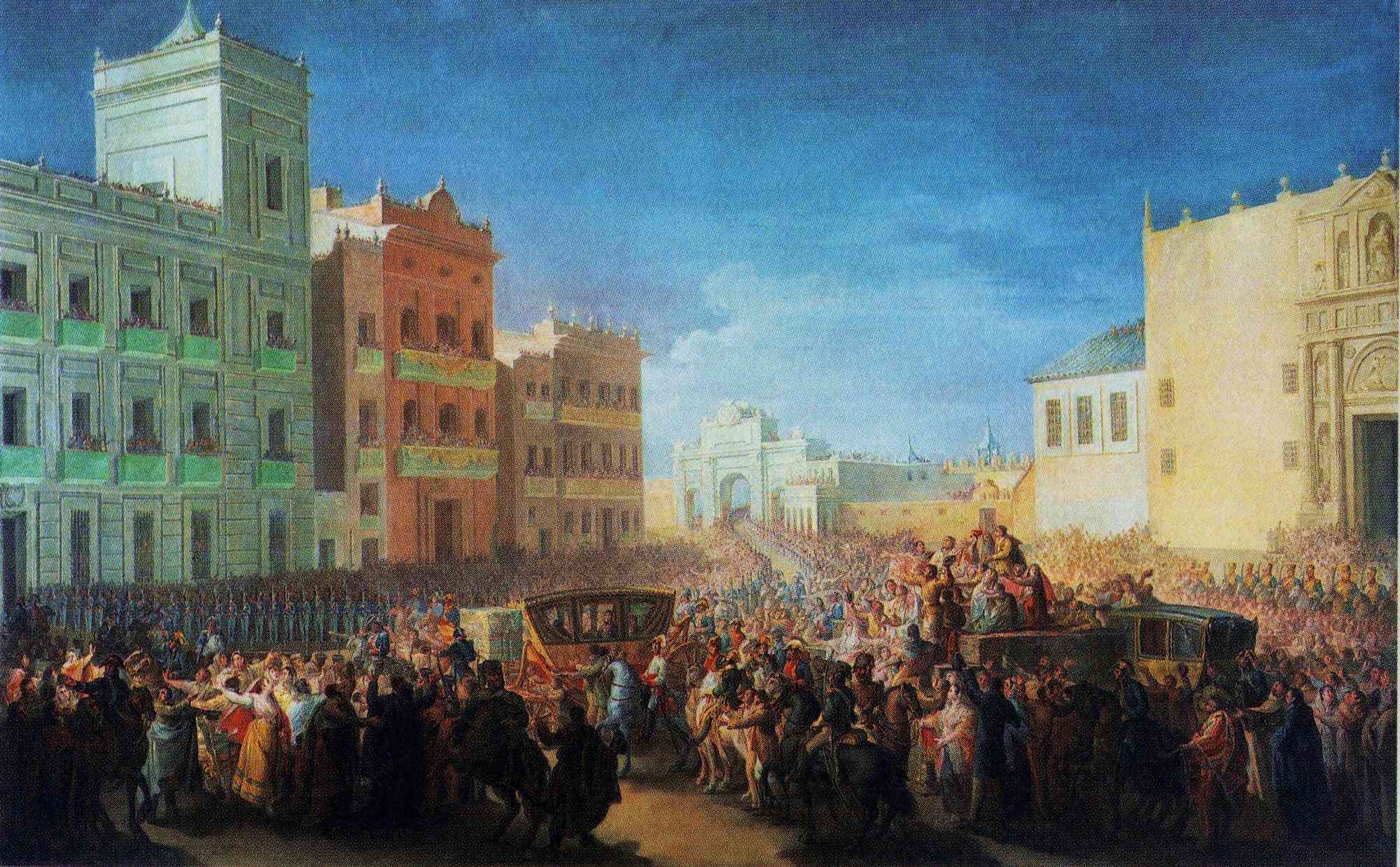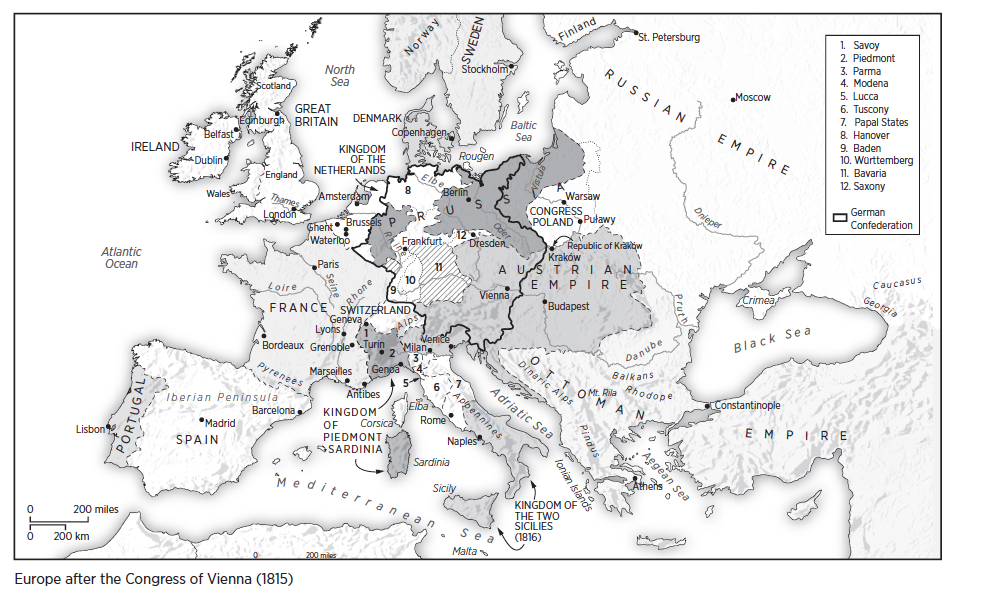


CHRONOLOGY OF KEY EVENTS, 1769-1815
1769 Births of Napoleon, Castlereagh and Wellington.
1770 Births of Canning and Czartoryski.
1772 First Partition of Poland.
1773 Birth of Metternich.
1777 Birth of Alexander.
1789 Meeting of the Estates General at Versailles; storming of the Bastille.
1790 Talleyrand officiates at the Fête de la Fédération.
1792 Fall of the French monarchy; beginning of French Revolutionary Wars.
1793 Execution of Louis XVI; beginning of the “Reign of Terror”; Second Partition of Poland.
1794 Fall of Robespierre
1795 Kant’s essay “On Perpetual Peace”; French Directory formed; Third
Partition of Poland.
1796 Bonaparte begins his Italian campaign.
1799 French Consulate.
1801 Murder of Paul I of Russia; Alexander becomes Tsar.
1802 Peace of Amiens.
1803 Czartoryski’s memorandum to the Tsar.
1804 Francis I declares himself Emperor of Austria; Czartoryski drafts instructions for Russian envoy to Pitt; execution of Duc d’Enghien; Napoleon crowns himself Emperor of the French.
1805 Pitt’s reply to Russian post-war plans; Third Coalition; Battle of Austerlitz; Naval battle at Trafalgar.
1806 Creation of Confederation of the Rhine; end of Holy Roman Empire; defeat of Prussia at Battle of Jena; creation of Continental System; Metternich made ambassador to France.
1807 Battles of Eylau and Friedland; Peace of Tilsit; creation of Duchy of Warsaw; Stein’s reforms in Prussia; Hardenberg’s “Riga Memorial.”
1808 German princes at Erfurt; Joseph made King of Spain; Spanish uprising.
1809 Wellington advances into Spain; defeat of Austria at Battle of Wagram; duel between Castlereagh and Canning; Metternich becomes foreign minister.
1810 Marriage of Napoleon and Marie Louise; appointment of Hardenberg.
1812 Napoleon’s invasion of Russia; Junta of Cadiz drafts Constitution of 1812; Battle of Borodino; burning of Moscow; Napoleon’s retreat; General Yorck signs Convention of Taurrogen; Castlereagh appointed Foreign Secretary.
1813 Metternich’s Dresden interview with Napoleon; Treaties of Kalisch and Reichenbach; Battle of Leipzig; Frankfurt Proposals; Battle of Vitoria; Castlereagh’s mission to the continent.
Key Events of 1814:
- Castlereagh and Metternich meet for the first time in Basel.
- Allied conferences at Langres.
- Allied invasion of Switzerland and France.
- Negotiations at Châtillon.
- Treaty of Chaumont.
- Royalist declaration at Bordeaux.
- Allied occupation of Paris.
- Alexander with Talleyrand in Paris.
- Abdication of Napoleon and Treaty of Fontainebleau.
- Restoration of the Bourbons.
- Louis XVIII grants Charte; Talleyrand Ministry; French keep stolen artworks.
- First Treaty of Paris: borders of France set; Belgian provinces united with Netherlands;
Austria gains control of North Italy; allied powers issue invitation to the rest of Europe
to send representatives to Vienna for the Congress. - In Paris, the Prussian minister Hardenberg gives his allies a memorandum on plans for
European reconstruction. - Visit of the allied sovereigns to London.
- Delegates to the Congress of Vienna gather in September.
- Allied powers debate the “Procedural Question” and the official opening of the Congress is repeatedly postponed; in fact, it never takes place in the form originally intended.
- Allied powers deadlocked over the Polish-Saxon Question. The Tsar intends to establish a new Kingdom of Poland, with himself as King, and to give all of Saxony to Prussia. Austria and Britain oppose the plan.
- Castlereagh’s audiences with the Tsar.
- Hardenberg cooperates with Austria and Britain against Russia.
- “Conspiracy of 23 October”: Metternich consents to give all of Saxony to Prussia; Britain, Austria and Prussia act together in resisting Tsar’s plans to take all of former Prussian and Austrian Poland for his Kingdom of Poland
- King of Prussia reprimands Hardenberg and orders him to cooperate with the Tsar.
- Metternich and Castlereagh retract offer of Saxony to Prussia.
- Russia and Prussia make Rhineland proposal, offering to give the King of Saxony a kingdom in the Rhineland in exchange for Saxony; Britain and Austria reject the proposal.
- Treaty of Ghent between Britain and the United States ends the War of 1812.
- In an angry outburst, Hardenberg threatens that Prussia will keep Saxony by force.
Key Events of 1815:
- Secret Treaty of Alliance between Austria, France and Britain signed on January 3, 1815.
- Meetings of the Statistical Committee begin.
- France is admitted into the negotiations of the allied powers.
- Final negotiation of territorial settlement of Central Europe based on a series of astute compromises.
- Negotiations of German Committee on future German Confederation.
- Austria agrees to oust Murat.
- Discussion of possible “General Guarantee.”
- Castlereagh leaves Vienna for London.
- Continuing negotiations on Switzerland, Scandinavia, rights of German Jews, slave trade, European rivers, and diplomatic precedence.
- Napoleon lands near Antibes and marches to Paris.
- Allied Declaration against Napoleon.
- Napoleon remains on the throne of France for Hundred Days (les Cent-Jours), March-June 1815
- Defeat of Murat in Italy.
- King of Prussia promises his subjects a constitution.
- Vienna Final Act.
- Battle of Waterloo.
- Second restoration of Louis XVIII.
- Talleyrand-Fouché Ministry.
- Resignation of Talleyrand over negotiation of Second Peace of Paris and appointment of Richelieu.
- Treaty of the Holy Alliance.
- Second Peace of Paris with return of stolen artworks, payment of reparations, losses of territory and occupation of France by Allied armies.
- Quadruple Alliance estblishes Congress System: allied powers to hold periodic reunions and consult if a new revolution breaks out in France.
- Ambassadorial conference in Paris supervises French government; construction of barrier fortresses in Belgium
- Unrest in Britain against Corn Laws; trial and execution of Marshal Ney.
Restoration of King Ferdinand VII in Spain in 1814
